Can India Foster Harmony for Nation-building aligned with Islamic Values?
“We remain strangers, even after so many meetings, Blood stains remain even after so many rains”
– Faiz Ahmed Faiz
India is a nation known for its diversity and multicultural fashion of coexistence. According to the Oxford thesaurus, the terminology of ‘diversity’ signifies ‘the quality or fact of including a range of many people or things’ while the first meaning reads as ‘range of many people or things that are very different from each other.’ While India is amongst the most diverse countries of the world, its residential attitude is thoroughly open for all and fully inclusive. Promoting unity among the diverse communities of the nation holds significant importance. Equally vital is the cultivation of an inclusive attitude towards different ethnicities within the region, state, or country. This inclusive perspective is referred to as a "homogeneous mindset," essential for the nation's progress, while the opposite is termed a "heterogeneous mindset." The methods employed to foster national harmony also contribute to nurturing a sense of fraternity. These very methods exemplify how both online and offline members of a nation appreciate its variety and multicultural essence. The attempt of the majoritarian section of the population to gain supremacy through launching policies, schemes, reforms and other public related issues, politically or socially trigger a feeling of alienation among the minorities and thus a heterogeneous mindset gets its shape sculpturing an irreversible gap between the majority and minority. Socially, the concept of casteism, regionalism, genderism, communalism and sectarianism are some dangerously grave gaps that India has yet to bridge.
The matter is not how largely diverse the country is, but instead, the matter is how immensely it contributes to guarantee a peaceful milieu and harmonised ambiance to the diverse citizens. Alongside keeping India’s inclusive approach on, the Islamic values should also be taken into consideration. Throughout this extended duration, not a solitary occurrence can be discovered in India or even within the Indian subcontinent that would attest to Islam opposing the concept of diversity or not endorsing it in any manner. Instead, Islamic principles abound with countless teachings that vividly demonstrate the comprehensive stance of Islam in terms of safeguarding both the religious and political facets of human existence. In due course, it would be worth looking at if India can foster harmony for nation-building aligned with Islamic values or not?
Four Questions
However, several factors give rise to three key inquiries regarding the integration of diversity within the realms of politics, judiciary, and executive power. Firstly, what strategies can India employ to effectively manage the political acceptance of diversity? Secondly, how can India feasibly implement a judicial approach that truly embodies this 'diversity'? Lastly, how can India create room for the inclusion of diversity within the framework of executive decision-making? Lastly and most importantly, does Islam, as a prominent faith, contribute significantly to the diversity of India, and what provisions are in place to acknowledge this contribution?
Political Embracement of Diversity
For political embracement of diversity, Indian supreme leaders like President, Lok Sabha Speaker, Rajya Sabha Speaker, Vice President, Chief Justice, State Justices and the entire collegium should commit to willingly embrace the diverse population of our nation as a privilege, rather than viewing it as a burden. For instance, Belgium stands as a nation characterized by a significant diversity rooted in linguistic distinctions and historical sectarian tensions. The ethnic composition of this small nation is passively complex. In terms of demographics, 59% of the entire population resides in the Flemish region, conversing in Dutch, while 40% inhabits the Wallonia region, using French as their language, and the remaining 1% comprises German-speaking Belgians. Most importantly, the capital city, Brussels comprises 80% of the population speaking French while the remaining 20% are Dutch. The French minority population primarily hails from affluent backgrounds and possesses a larger share of capital, whereas the Dutch community experienced economic and educational advancement at a later stage. This led to national tensions between Dutch and French-Speaking communities during the 1950s and 1960s. Brussels depicted a special complex issue because Dutch-Speaking people gained a majority in the country, but a minority in the capital.
In saying so, the country of Belgium, embracing diversity, made policies to accommodate all sections for nation-building. Between 1970 and 1993, they totally amended their constitution four times to frame an arrangement for embracing diversity where great leaders, law-makers and executive officers of this nation came under one umbrella and upheld diversity altogether. Here are some elements of Belgian model that was coined aiming at embracing diversity;
- The Constitution of Belgium prescribes that the number of Dutch and French-Speaking ministers shall be equal in the central government.
- Brussels has a separate government in which both the communities have equal representation.
The example of Belgium illustrates that a nation can effectively embrace diversity by instituting policies that prioritize equal representation and accommodation across linguistic communities.
Judicial Embracement of Diversity
Judicially, Indian diversity is at strife. The neo-majoritarian mode of governing and imposing preferential policies and laws favouring only one group of population disregarding others is not the prudent spirit of a diversity-friendly country like India. Currently, Uniform Civil Code, Unlawful Activities Prevention Act, Triple Talaq, Foreign Contribution (Regulation) Act 2010, Citizenship Amendment Act, NRC, Armed Force Special Power Act 1958 are the grievous attack on the eco-friendly feature of Indian diversity. These judicial steps are not less than the deep loopholes laid on a roadmap. India has yet to wear on before crossing it and stepping over the world of developed nations. As long as these anti-diversity heterogeneously judicial moves favouring the supreme section of population stay in India, the characteristics of diversity can only contribute to economic, social, and national grievances causing caste issues, gender problems, regional impasses and communal violence.
Executive Embracement of Diversity
Moreover, how India would have space to comprise executive embracement of diversity is based on how the executive representation of diverse communities of India is accommodated into the Cabinet of the timely government. The Indian Express reports that as per the 2011 Census, Muslim communities make up 14.2% of the country’s total population, but their political representation is calculated at only 3.93%. Despite Muslims constituting over 19% of India's population, the NDA failed to allocate even 9% of cabinet positions to them, highlighting a heterogeneous mindset that is incompatible with fostering diversity. For my money, the lack of diverse representation in the cabinet, particularly among minorities like Muslims, seems to contribute to widespread opposition and protests against the government's policies. From a psychological perspective, the wealthy often struggle to empathize with the hardships of poverty, just as a cabinet dominated by a majority may struggle to fully understand the concerns and aspirations of minorities. This underscores the necessity for minority representation in the cabinet to genuinely embrace diversity at the executive level.
Islamic Perspective of Diversity
Islam, through all the times, plays a vital role in upholding the ardent spirit of diversity. Therefore, Islam promotes the universality of humanity cherishing the intrinsic value of equality regardless of the people’s ethnic, racial or cultural backgrounds. The Qur’an states testifying it in Surah Al-Hujurat: “O mankind! We created you from a single (pair) of a male and a female, and made you into nations and tribes, that ye may know each other (not that ye may despise (each other). Verily the most honoured of you in the sight of Allah is (he who is) the most righteous of you. And Allah has full knowledge and is well acquainted (with all things).”[1] Within this verse, Islam promotes the value of embracing tolerance, urging its adherents to demonstrate acceptance toward individuals from varied backgrounds. The Quran promotes dialogue and understanding among different communities, advocating for peaceful coexistence. In Surah Al-Kafirun, believers are instructed: “To you be your Way, and to me mine.”[2] signifying the importance of respecting others’ beliefs.
The concept of "Ummah," denoting the worldwide Muslim community, serves as proof of social justice by fostering collaboration and solidarity among Muslims, irrespective of their cultural or ethnic distinctions. Moreover, the doctrine of protection of minority rights is the primary priority in Islamic teaching and thereby it emphasizes the protection of the rights of minorities within Muslim-majority societies. The “dhimmi” system historically provided legal protections for non-Muslims living under Islamic rule, ensuring their religious freedom and safety.
Furthermore, these principles can also be observed within the teachings of the Messenger of Allah ﷺ. Emphasizing the true spirit of brotherhood and inclusive mentality, the Messenger ﷺ conveyed: "The similitude of believers in regard to mutual love, affection, fellow-feeling is that of one body; when any limb of it aches, the whole-body aches, because of sleeplessness and fever."[3] This Hadith underscores the interdependence of believers and their duty to support one another. There are several such hadiths where the Messenger of Allah emphasized respecting and valuing the diversity of languages, cultures, and appearances among people and why wouldn’t he the Quran claims these things are signs of Allah the Almighty, claiming:
وَمِنۡ ءَايَٰتِهِۦ خَلۡقُ ٱلسَّمَٰوَٰتِ وَٱلۡأَرۡضِ وَٱخۡتِلَٰفُ أَلۡسِنَتِكُمۡ وَأَلۡوَٰنِكُمۡۚ إِنَّ فِي ذَٰلِكَ لَأٓيَٰتٖ لِّلۡعَٰلِمِينَ
“Among His signs is the creation of the heavens and the earth, and the diversity of your languages and colors. Surely, there are signs in this for People of knowledge.”[4]
These Islamic values showcase how widely the Islamic values are ingrained with the theme of inclusivity. There are so-called contentions regarding Islam’s acceptance of diversity and the people behind these strife should be introduced to these values to help them realize how inclusive Islam’s teaching and transactions are in real life. Or at least, these people should have a proper read of Islam before just making up their mind of its principles to be anti-social and anti-progressive. In doing so, they would be able to have a proper recognition of the social and humanitarian outlook of Islam.
Conclusion
For the final measures, the parameter of embracing diversity thoroughly relies upon the three types of leaders of a society; first, the supreme political leaders (PM, Ministers, CMs etc.), second, the judicial supreme leaders and third, the social leaders (religious, caste, gender, or communal leaders) who are ready to nurture an inclusively homogenous mindset same as the leaders of Belgium diverse communities had contributed to. Concisely, the political leaders and supreme court justices should work on facilitating the political representation of marginalized sections in the cabinet as well as contribute to the key solutions to the heterogeneous issues against diversity.
Likewise, caste sarpanch, gender protestants, communal leaders and regional reformers should make a habit of instilling the wisdom of fraternity and brotherhood conveying the message of mutual respect thus the idea of embracing diversity and fostering harmony for nation-building works. In saying all these things, one should not sideline the contributions Islam has put forth since the earliest days with the role of Islamic values in fostering harmony for nation-building. Along with incorporating the Islamic values or at least giving it due recognition, the attendance of all the aforementioned matters would be a requirement to ensure the diversity-friendly feature of India is kept intact. If not, Faiz Ahamed Faiz was right while noting his poem “we remain strangers, even after so many meetings, blood stains remain even after so many rains”.
References
‘ Diversity In India’ ( December 18, 2022), ClearIAS
‘Diversity of India; Cultural, Religious, Social, Geographic and Ethnic’ (06 Apri, 2023), Study IQ Education.
Tariq Mansoor (June 29, 2023) “Margins in Minority”, Indian Express
‘The Chapter of Federalism’ , NCERT Class 10th Textbook, The Democratic Politics ll
INDIAN Census 2011
Surah Al-Rum 30:22
Surah Al-Hujurat 49:13
Surah Al-Kafirun 109:06
Endnotes
[1] Holy Quran: 49/13
[2] Holy Quran: 109/06
[3] Sahih Muslim 2586a, b.45, h.84
[4] Holy Quran: 30:22
About the author
Nairul Sk is from Birbhum in West Bengal. He is a B.A. political science second year student at Indira Gandhi National Open University. He can be contacted at sknairul7862000@gmail.com
Disclaimer
The views expressed in this article are the author’s own and do not necessarily mirror Islamonweb’s editorial stance.

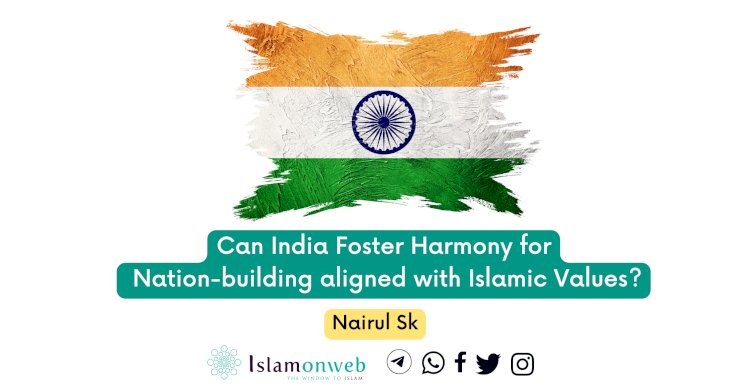



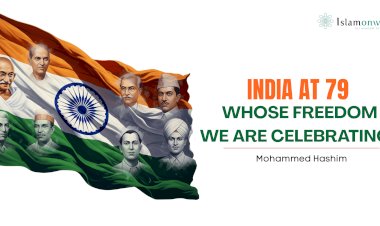

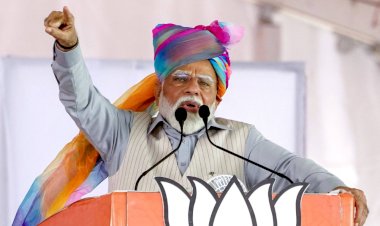
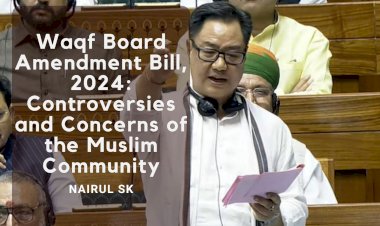
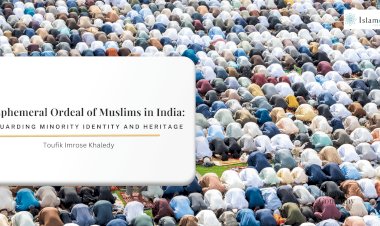
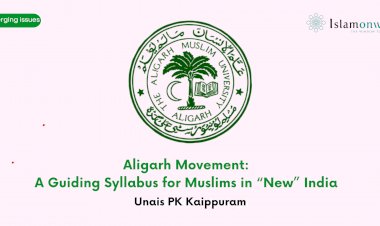














Leave A Comment